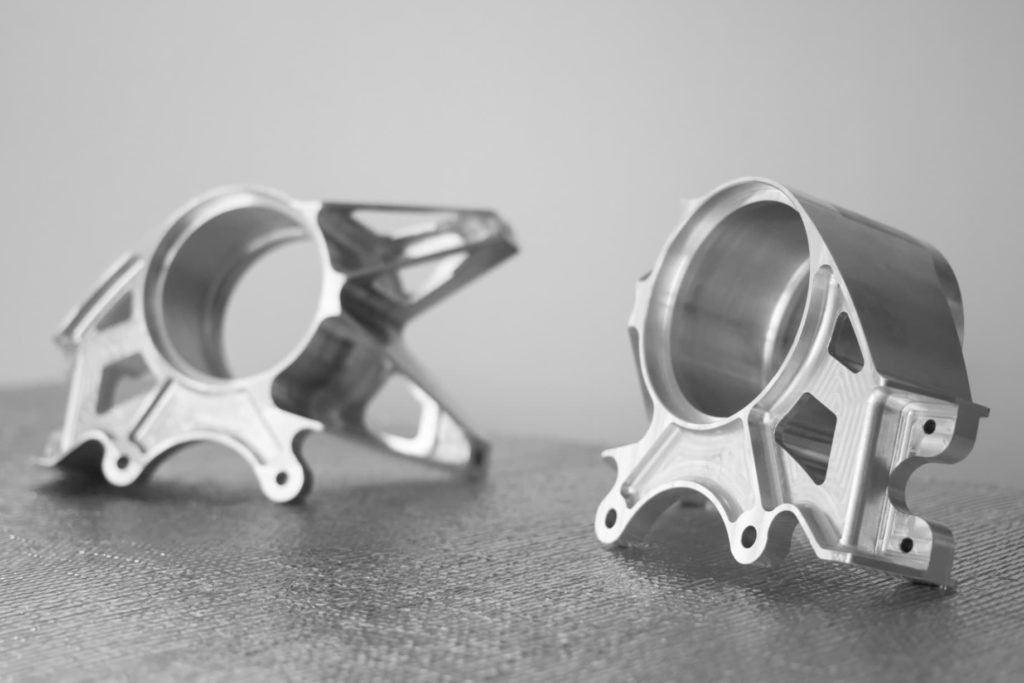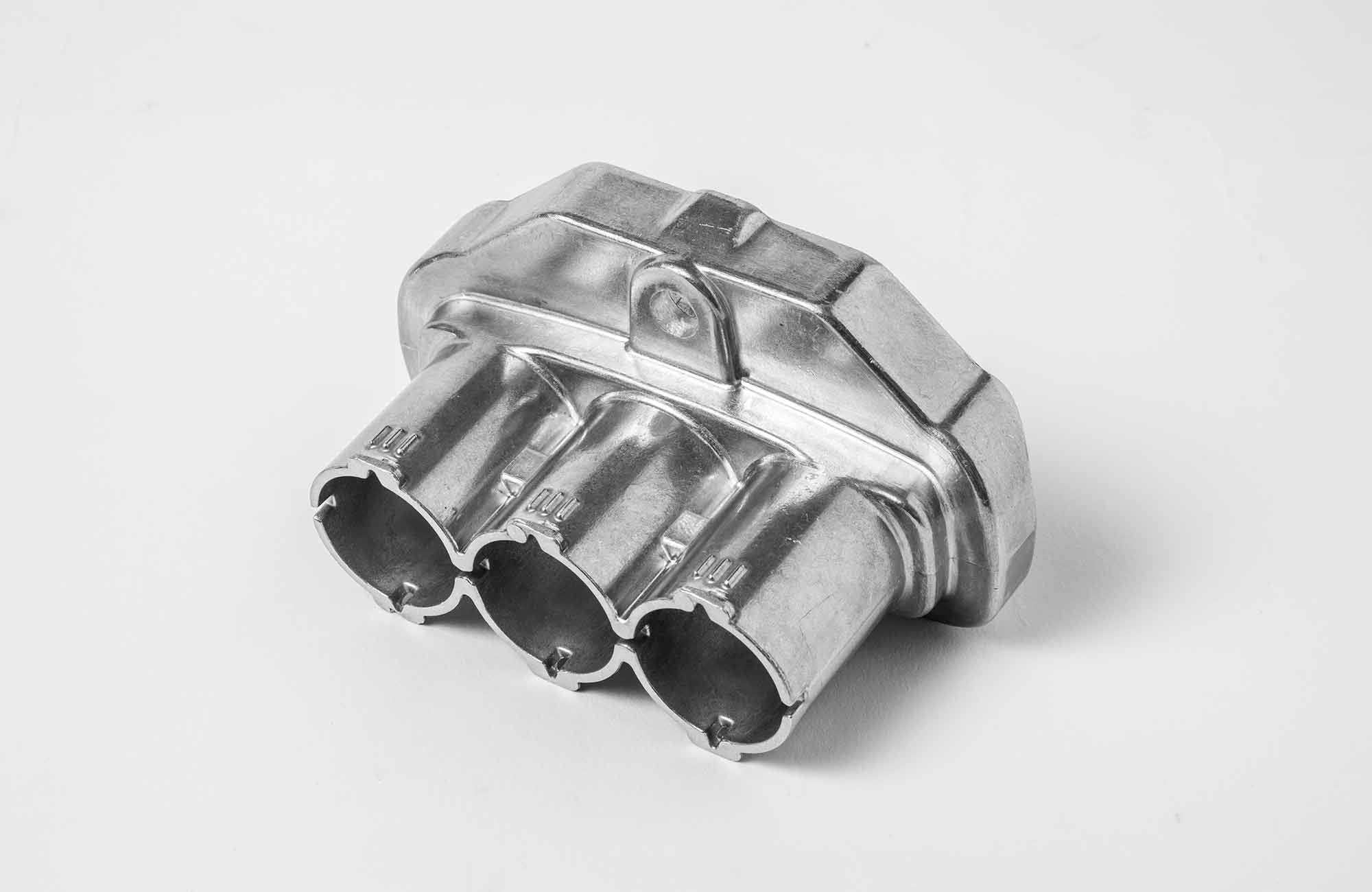All About Alcast Company
All About Alcast Company
Blog Article
Alcast Company for Beginners
Table of ContentsThe 2-Minute Rule for Alcast CompanyGet This Report about Alcast CompanyMore About Alcast CompanyNot known Facts About Alcast CompanyTop Guidelines Of Alcast CompanyThe Basic Principles Of Alcast Company
Chemical Comparison of Cast Aluminum Alloys Silicon promotes castability by reducing the alloy's melting temperature level and improving fluidness during spreading. Additionally, silicon contributes to the alloy's stamina and wear resistance, making it important in applications where toughness is essential, such as automotive parts and engine elements.It additionally enhances the machinability of the alloy, making it less complicated to refine into completed items. In this method, iron contributes to the total workability of aluminum alloys.
Manganese adds to the strength of aluminum alloys and improves workability. Magnesium is a lightweight component that supplies toughness and effect resistance to aluminum alloys.
The 30-Second Trick For Alcast Company
It enables the production of lightweight elements with excellent mechanical buildings. Zinc boosts the castability of aluminum alloys and helps manage the solidification process throughout spreading. It enhances the alloy's strength and solidity. It is typically found in applications where complex shapes and great details are necessary, such as attractive spreadings and specific automobile components.

The key thermal conductivity, tensile strength, yield toughness, and prolongation vary. Select appropriate resources according to the performance of the target product created. Amongst the above alloys, A356 has the greatest thermal conductivity, and A380 and ADC12 have the most affordable. The tensile limitation is the opposite. A360 has the very best yield stamina and the greatest prolongation price.
Some Known Factual Statements About Alcast Company

In precision spreading, 6063 is appropriate for applications where elaborate geometries and premium surface area coatings are vital. Instances include telecommunication rooms, where the alloy's remarkable formability permits sleek and cosmetically pleasing designs while keeping structural honesty. Similarly, in the Lights Solutions market, precision-cast 6063 parts produce elegant and efficient illumination fixtures that need detailed shapes and great thermal efficiency.
The A360 exhibits premium elongation, making it optimal for complex and thin-walled elements. In accuracy casting applications, A360 is fit for markets such as Customer Electronics, Telecommunication, and Power Devices.
An Unbiased View of Alcast Company
Its distinct residential or commercial properties make A360 a beneficial selection for precision spreading in these industries, enhancing product durability and high quality. Foundry. Light weight aluminum alloy 380, or A380, is a widely used spreading alloy with several distinctive qualities.
In precision spreading, aluminum 413 radiates in the Consumer Electronics and Power Devices industries. It's frequently utilized to craft complex components like smart device real estates, camera bodies, and power device housings. Its accuracy is amazing, with tight resistances approximately 0.01 mm, making certain perfect item assembly. This alloy's exceptional corrosion resistance makes it an excellent option for outside applications, making certain lasting, durable items in the pointed out markets.
Not known Facts About Alcast Company
When you have actually made a decision that the aluminum pass away casting procedure appropriates for your task, a vital following action is more helpful hints choosing one of the most appropriate alloy. The aluminum alloy you select will considerably affect both the casting process and the properties of the last item. Since of this, you should make your choice meticulously and take an enlightened approach.
Establishing one of the most suitable aluminum alloy for your application will mean weighing a broad array of qualities. These comparative alloy characteristics follow the North American Die Spreading Association's standards, and we have actually divided them into two classifications. The very first group addresses alloy characteristics that impact the production process. The 2nd covers features affecting the properties of the end product.
Alcast Company Fundamentals Explained
The alloy you pick for die spreading straight influences a number of facets of the spreading process, like just how simple the alloy is to function with and if it is prone to casting defects. Hot breaking, also known as solidification breaking, is a common die casting flaw for light weight aluminum alloys that can lead to internal or surface-level rips or splits.
Certain light weight aluminum alloys are a lot more susceptible to hot splitting than others, and your option needs to consider this. It can damage both the cast and the die, so you must look for alloys with high anti-soldering residential properties.
Corrosion resistance, which is already a notable attribute of light weight aluminum, can vary considerably from alloy to alloy and is an important characteristic to think about depending on the environmental problems your product will be exposed to (aluminum casting manufacturer). Put on resistance is another property commonly sought in light weight aluminum products and can separate some alloys
Report this page